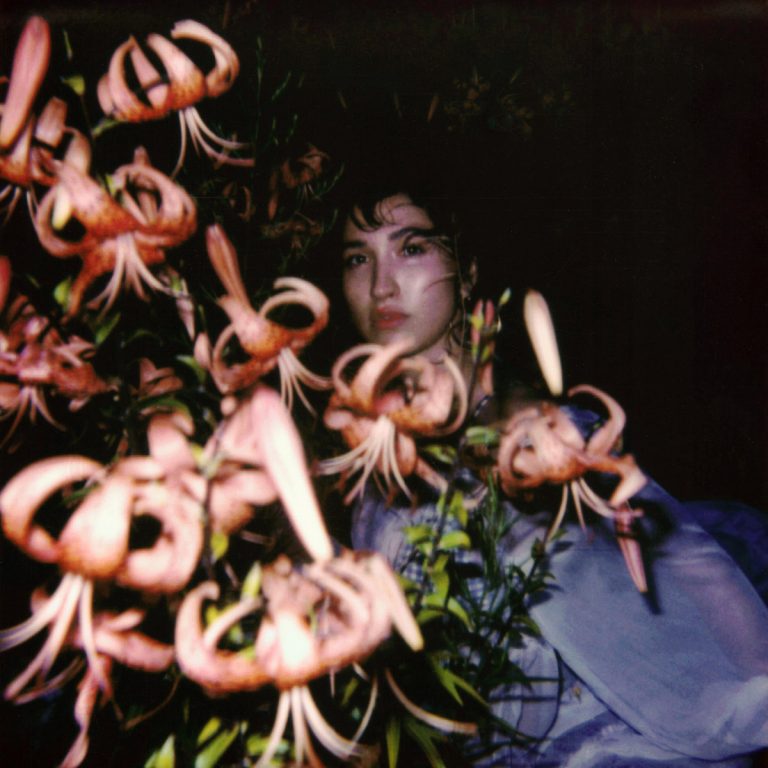Shirley Hurt looks upon time as a languorous entity that either swells memory or steals it. Hurt – the new project from musician Sophia Ruby Katz – refers to it through her self-titled debut album, always with a skeptical air. “The future is a loaded gun,” she casually sings at one point, and at another she aches “there’s nothing sadder than a year gone by.” Of the album Hurt explains: “The landscape feels blue and burnt orange. There is a wistfulness and longing, whether I like it or not.” Composed, compiled, and coloured by her time on the road, the album burns a low-lit flame that’s both ready to be extinguished into ash and also given more fuel.
Two factors help Shirley Hurt at its most striking moment. One is the band she’s compiled around her. Featuring Jason Bhattacharya on drums, Harrison Forman on guitar and bass, and Joseph Shabason on sax and flute, all the names involved here seem acutely attuned to Hurt’s slightly angular approach. At heart, Hurt’s compositions are gentle and hushed guitar or piano skeletons, and the accompanying players lock into the mindset. The patient drums add a swoon to opening track “The Bells”, violin (from Jacques Mindreau) adds breadth on the explorative “Pendulum”, and the flute and piano melody on early single “Problem Child” adds a pert hook.
The second important factor is Hurt herself, particularly her voice. Throughout the album’s 35 minute runtime she’s playful but deliberate with her voice. She explores her higher register during a verse but drops it to a Laura Fell-like baritone the next. It’s the latter style which sinks deeper and produces more memorable moments. On “All Looks The Same to Me” the deadpan delivery of the titular line against hushed and dusky guitar strums leaves a curiously unsettling aftertaste (helped along by lines like “I am tired, I am weeping… I am smiling, I am screaming”). Elsewhere on “Empty Hands” her voice adds a sardonic swagger as she apologizes to her new man’s ex. “But you’ll find another one baby / There’s a ton of them running round lately / Or so they say,” she repeats with a poker-faced casual air.
A compelling voice and a strong set of players behind it are mostly enough to make Shirley Hurt worth your time. Hurt has a way of capturing and portraying a world weary tone (“Let Me Down Easy”) and also an intimate kind of gentle sadness (the soft and brief piano interlude “Smile”). There is a certain distance between her and the listener though, moments where she’s either just a little too cryptic or impersonal to draw you in.
“Pendulum” is a good example of this: it’s not the most engaging moment here, and knotty lyrics like “From your future and / It’s old patterns hemmed in common sense / Too pretty to reprimand or comprehend” tie it down more than it should. But the searching nature of the song – Hurt taking up more space as she talks about stopping and preserving time while spreading out in a gauzy backdrop of twinkly keys, finger picked guitar, and bleary strings – is still commendable and far from unenjoyable to listen to.
“Charioteer” is another good example. Its chorus is excellent, if not a little too chilly to embrace fully. Hurt is once again playful with her voice, sliding up her register on the word “dear” after lingering in the lower depths of it during the verse. A strut accentuated by some nimble drums, it’s a takeaway track, but it’s still missing a certain warm-bloodedness.
Shirley Hurt may be a record of wistfulness and longing (the record’s first line, “My life is like a koan / It’s designed to make me break” echoes dolorously throughout each of the tracks here), but with a little more whimsy – like that found on “Problem Child”, for instance – it would have turned those self-described deep blues and burnt orange colours into a more vivid colour palette.

